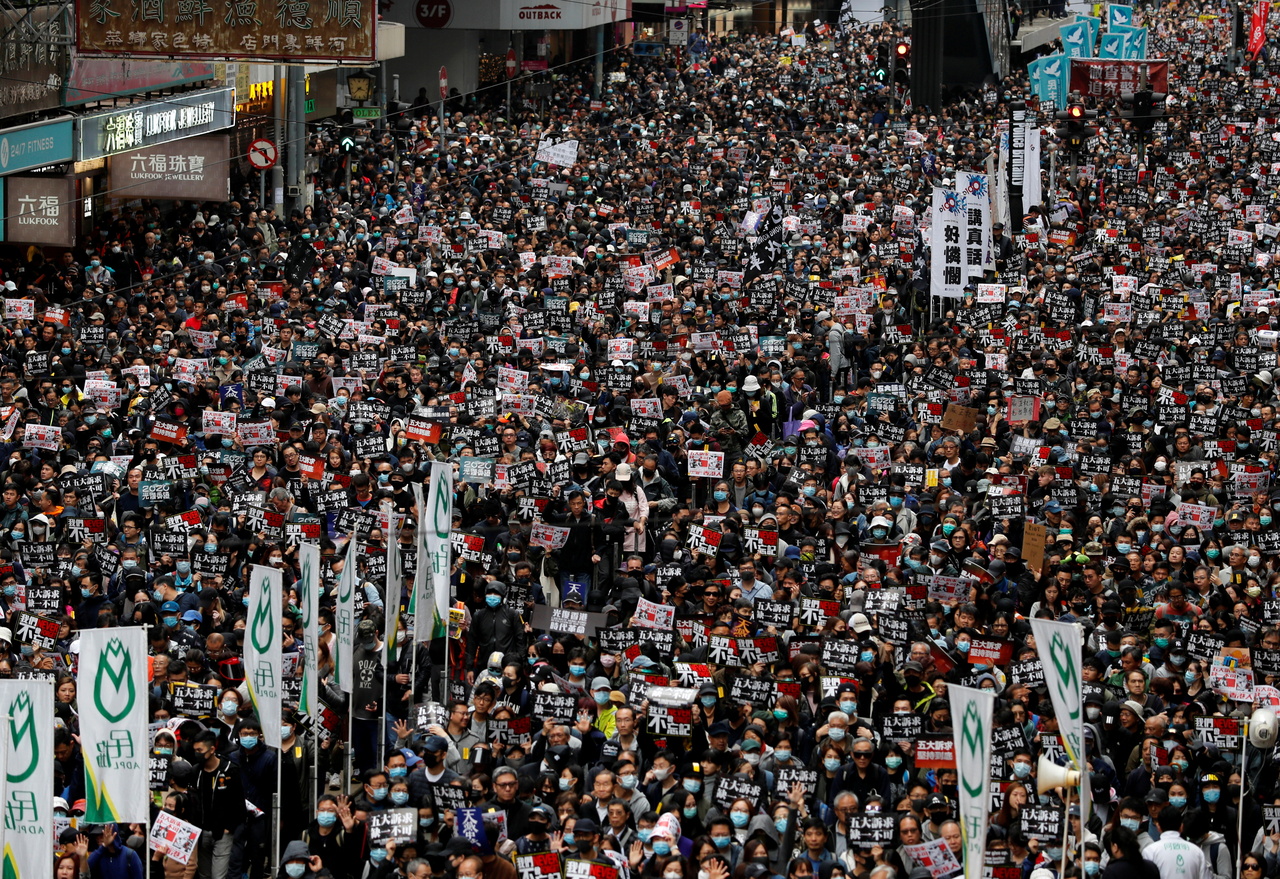Civil Human Rights Front, the group behind Hong Kong's democracy rallies, disbands
Sign up now: Get ST's newsletters delivered to your inbox

People attend a demonstration held by the Civil Human Rights Front in Hong Kong on Jan 1, 2020.
PHOTO: REUTERS
Follow topic:
HONG KONG (REUTERS) - Civil Human Rights Front (CHRF), the pro-democracy group that organises Hong Kong's annual July 1 rally and galvanised millions to take part in street protests in 2019, said on Sunday (Aug 15) that it has disbanded, in the latest blow to the opposition movement.
The group was established in 2002 with an aim to provide a platform for different organisations to promote the development of human rights and civil society in Hong Kong.
It organised the global financial centre's first July 1 rally in 2003 that saw half a million people took to the streets to protest against a draft national security law, known as Article 23, that was later shelved.
Police in April accused the group of breaching the Societies Ordinance and asked it to submit information regarding its finances and past activities.
"The police reiterated that for crimes committed by an organisation and its members, the criminal responsibility will not be wiped out due to the disbandment or resignation of the members," police said in a statement, adding that they will continue to pursue any organisation or person for violations of the Hong Kong National Security Law and others.
CHRF said an annual meeting was held last Friday and the members decided to disband immediately.
"In the past year, the government has continued to use the epidemic as an excuse to reject demonstrations' applications from CHRF and other groups," it said in a statement on Sunday, referring to the Covid-19 pandemic.
"Member groups have been suppressed, and civil society has faced unprecedented severe challenges," CHRF said.
The group said its HK$1.6 million (S$278,753) of assets would be donated to other appropriate organisations.
The disbanding comes on the heels of a similar move by the Professional Teachers' Union after it was criticised by Chinese state media and Hong Kong authorities, deepening concerns over a crackdown on the city's opposition movement.
CHRF's decision also casts a shadow over the future of the July 1 rally that marks the handover of the former British colony to Beijing in 1997 and which traditionally sees thousands taking to the streets to protest against everything from sky-high house prices to dissatisfaction with the government.
"Along with political parties, media outlets and unions, we sadly now must add NGOs to the list of those targeted simply for doing their legitimate work," Mr Joshua Rosenzweig, head of Amnesty International's China team, said in a statement.
"The pattern of self-censorship seen this week also signals a concerning domino effect as Hong Kong's draconian national security law has triggered an accelerating disappearance of independent civil society groups from the city," Mr Rosenzweig said.
Authorities closed off parts of Victoria Park - where the annual rally usually starts - on this year's anniversary, citing coronavirus restrictions.
Hong Kong's democracy movement has crumbled since Beijing imposed a national security law on the city a year ago, with mass arrests of key opposition leaders, some of whom have also been jailed.
Critics of the law say it is being used to crush dissent, which authorities in Beijing and Hong Kong reject. The national security law punishes acts of subversion, secession, terrorism and collusion with foreign forces with up to life in jail.

